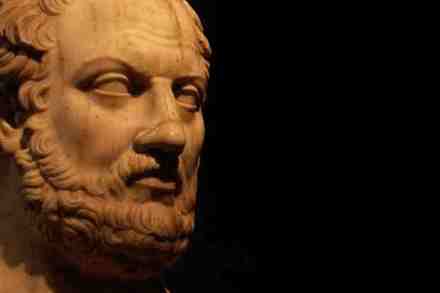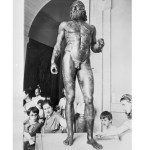Thucydides on McGuinness
When Gerry Adams rose to announce at his funeral that Martin McGuinness was no terrorist but a ‘freedom fighter’, the historian Thucydides probably allowed himself a grim smile. He knew all about these sort of people. In 427 BC, Corcyra (ancient Greek Kerkura, now Corfu) was in the grip of a ferocious civil war between oligarchic and democratic factions for control of the state. The feature that stood out for Thucydides was the reversal of all normal, civilised values on both sides of the divide. Most striking of all, ‘men reversed the usual evaluative force of words to suit their own assessment of the situation’. The result was that ‘cowardice’ was now






